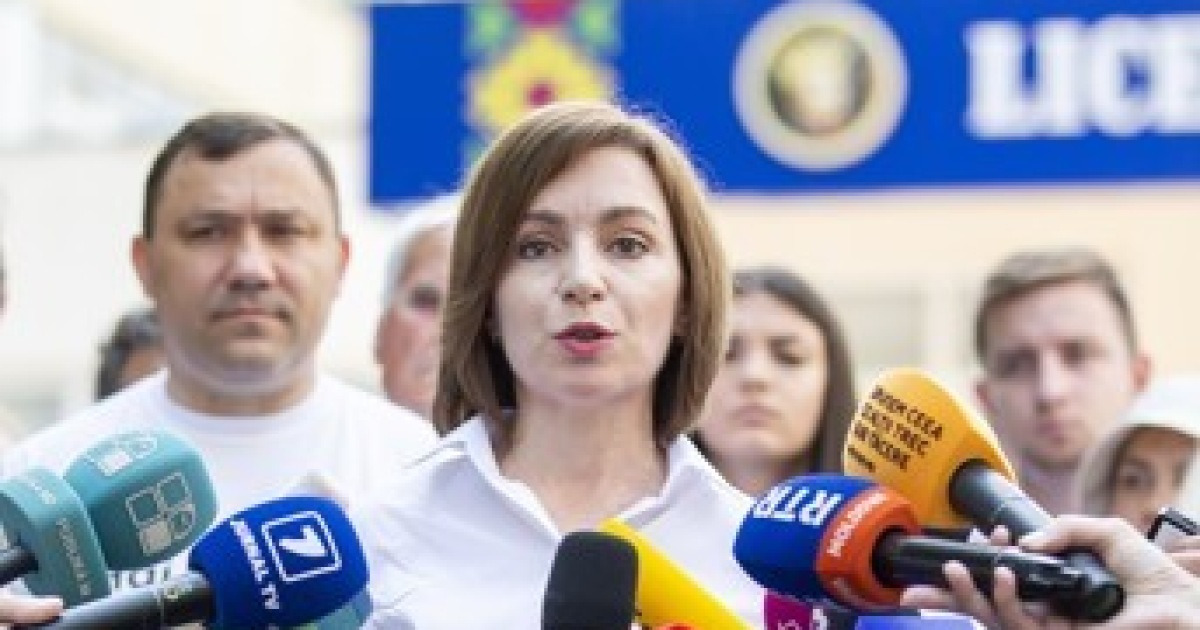
Moldovans headed to polling stations on Sunday to vote in a pivotal parliamentary election that will determine whether the former Soviet nation will stay on its path to EU integration or steer towards Moscow.
The polling stations opened at 7 am and will close at 9 pm, while the results are expected to be announced late on Sunday. The country’s pro-EU President Maia Sandu’s Action and Solidarity Party (PAS) faces a challenging competition from pro-Russian parties led by former president Igor Dondon. In this election, the impoverished nation of 2.4 sandwiched between Romania and Ukraine has to decide whether Chisinau will join the European Union or cling to relations with Russia. Moldova’s EU membership goals were enshrined in the country’s constitution after last October’s referendum that also saw Maia Sandu be re-elected as a president for a four-year term. Maia Sandu’s government’s main vulnerability during her presidency remain to be economic problems, high inflation, and mass migration. Her proponents insist these problems stem from outside factors, such as Russia’s invasion of Ukraine in 2022 that triggered energy crisis, cut off trade routes and incited economic turmoil in the country.
Europe’s security at line
The outcome of Moldova’s election will not only determine the country’s political course but will also affect the security of EU and NATO. According to an unnamed western diplomat cited by the Guardian, despite being a small country, the consequences of the election held in Moldova will be “disproportionally big” for Europe. “If Moldova turns back to Russia, it will be a massive headache for European security.”
Bordering Ukraine, Moldov is vulnerable to any threat coming from Russia and is believed to be next in line for Russia’s invasion. According to western intelligence sources, Moldova is Russia’s “key foreign policy priority after Ukraine” in recent months, and the Kremlin has reshuffled its team handling Moldova in order to pursue a more aggressive policy towards Chishinau. In his address to the UN General Assembly this week, Ukrainian President Volodymyr Zelenskiy addressed alarming concerns about the future of Moldova.
“Europe cannot afford to lose Moldova too. For Europe, supporting Moldova’s stability is not costly, but failing to do so will come at a much higher price. That’s why the EU needs to help Moldova now with funding and energy support, not just words or political gestures,” Zelenskiy said in his speech on September 24.
Russia’s meddling
Russia carries considerable weight in Moldova as the country is divided between pursuing closer ties with the EU or continue its ex-Soviet traditions alignment with Moscow. Chisinau accuses Moscow of meddling into its electoral process. This year’s parliamentary election is marred by allegations of Russia’s meddling that includes funnelling billions of dollars for vote rigging schemes, pro-Russian propaganda and incitement of anti-European sentiments. Moreover, Moscow is sheltering Moldova’s fugitive oligarch Ilan Shor who is accused of orchestrating destabilizing campaigns in the country. Earlier this week, president Sandu warned that her country’s independence was in danger after police arrested dozens of people accused of being in a Russia-backed plot to incite violence on the streets. Thus, Sandu described Sunday’s parliamentary election as the most significant election in the small nation's history.
Meanwhile, Valeriu Pașa, a senior analyst from WatchDog civil society prganization has described Russia’s ongoing meddling schemes as a “huge operation”, “something that has not happened in any other country.” It should be noted that Russia has 1,500-strong troops in Moldova’s Russian-speaking Transnistria separatist region that waged a war with Chisinau in the 1990s. Transnistria, along with other pro-Russian semiautonomous Gagauzia region are expected to vote against Sandu’s PAS party.
Diaspora’s role
In today’s parliamentary election, Sandu’s PAS party largely relies on Moldovan diaspora who have played a major role in last November’s presidential election as they were responsible for as much as 19% of the ballot. Experts predict diaspora votes are also being targeted by Russian meddling campaign due to their importance.
Comments
Leave a Reply
Your email address will not be published. Required fields are marked *